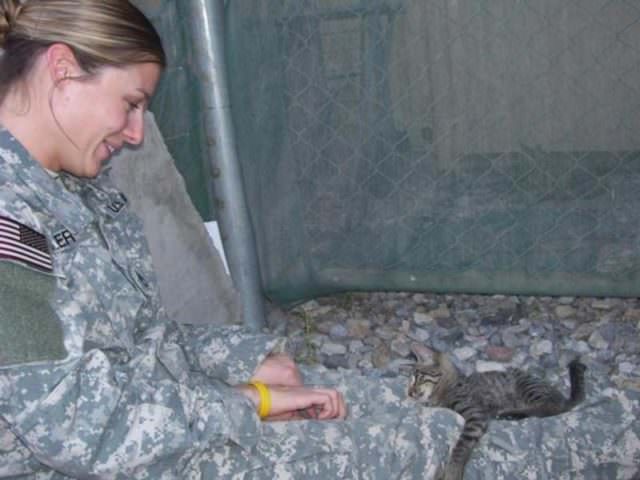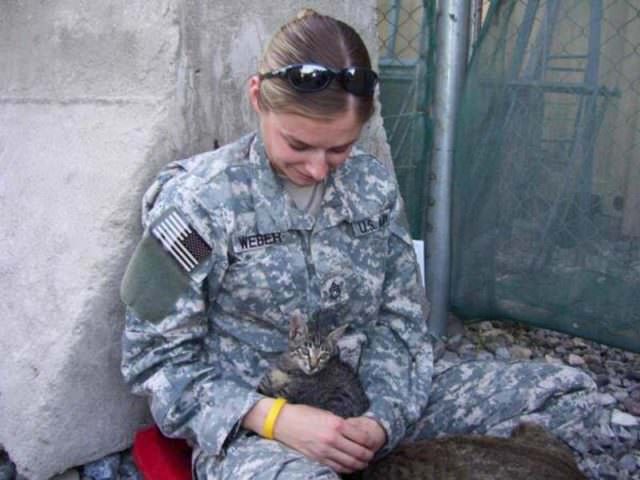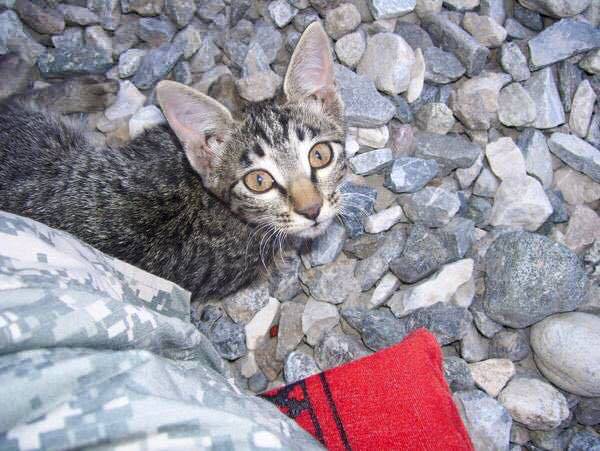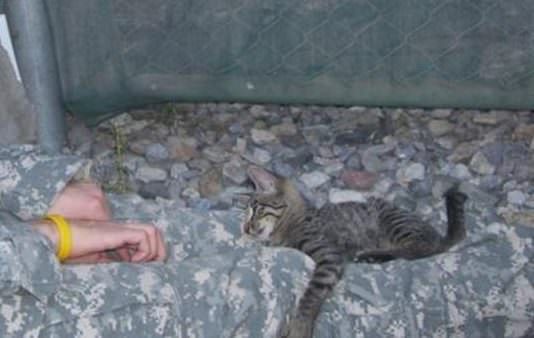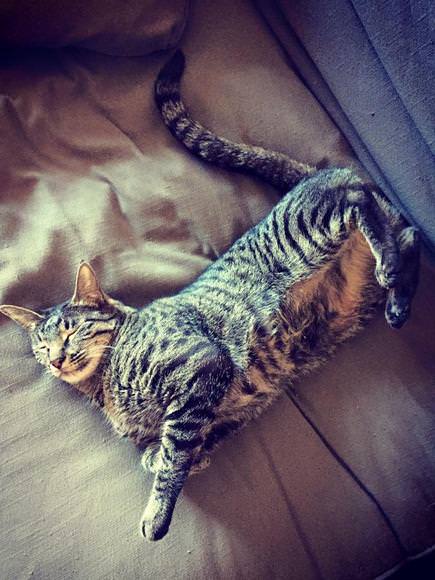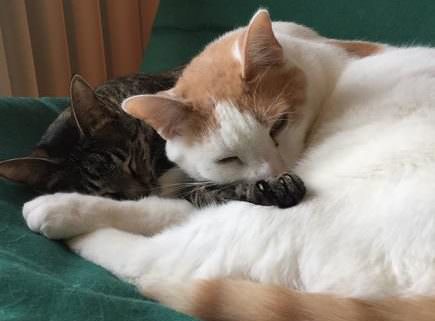An American solider stationed in Afghanistan performed her final act of overseas heroism when she rescued a very special kitten. Christine Bouldin served in the Army for 8 years, and as of 2008 she was finishing up her final deployment at Bagram Airfield.
An animal lover all her life, Bouldin – a Signals Intelligence analyst – heard that a mama cat and her kitten had been spotted on base.
Both cats appeared undernourished and feral, but the kitten’s health was especially concerning. The little tabby with the big ears would stumble and fall over when she tried to walk. Bouldin described it as a kind of “kitty Parkinson’s.”
She began to seek the pair out daily, offering them tuna and milk. She dubbed the special little kitten Felix and slowly earned the mama cat’s trust. Once Felix came to understand that Bouldin was there to help, she would allow her to hold her steady as she ate.
Bouldin decided to do some online research on Felix’s illness. She typed “Cat Parkinson’s” into Google and watched dozens of videos. It seemed that Felix was suffering from a condition known as Cerebellar Hypoplasia (CH), often caused when the mother is exposed to Feline Panleukopenia Virus (FPV) while pregnant.
CH is not curable, but it also does not progress or get worse. It affects the area of the brain that controls fine motor skills, making it impossible for affected cats to make smooth, fluid motions. Despite her disability, Felix was growing into an otherwise healthy, happy kitten.
One day, Felix’s mother did not show up to be fed. Bouldin never saw her again. She became extremely concerned for the kitten’s well being, so a friend built a small cat house to keep Felix safely confined between Bouldin’s twice daily visits.
Bouldin knew she could not head back to the states without Felix, so she began searching for a way to get her home. The base’s veterinarian offered a beacon of hope when she told her about an American woman in nearby Kabul who did animal rescue work.
The rescuer, Pam Constable, agreed to care for Felix while working in Kabul, then bring the kitten home to the U.S. with her. That fall, Bouldin paid a cab driver $300 to drive Felix to Kabul. She wept as the car pulled away, fearing for the kitten’s safety and wondering if she would ever see her again.
Over the next 6 months, Constable cared for Felix, marveling at the kitten’s affectionate attitude and strength of spirit. Despite her disability, she would always find a way to accomplish whatever she put her mind to – from climbing onto the bed to wake up her caretaker, to performing a kind of acrobatic flip into the litter box.
Finally in the spring of 2009, Constable was ready to fly stateside. Bouldin happily paid Felix’s $2,000 fare, and drove the 5 hours from North Carolina to Virginia to pick her up.
Today, Felix lives in Colorado with Bouldin, her husband, and a male rescue cat named Gus – Felix’s kitty soulmate. The two are inseparable, frequently sleeping in a tangled pile of cat limbs.
Although her CH means that Felix will always require a bit of extra care – stairs must be baby gated and she’s a very messy eater – Bouldin wouldn’t trade her for the world. The special tabby always lifts her spirits with a simple twitch of her tail – Felix’s unique way of showing her affection.
All Photos c/o Christine Weber Bouldin via People Pets

